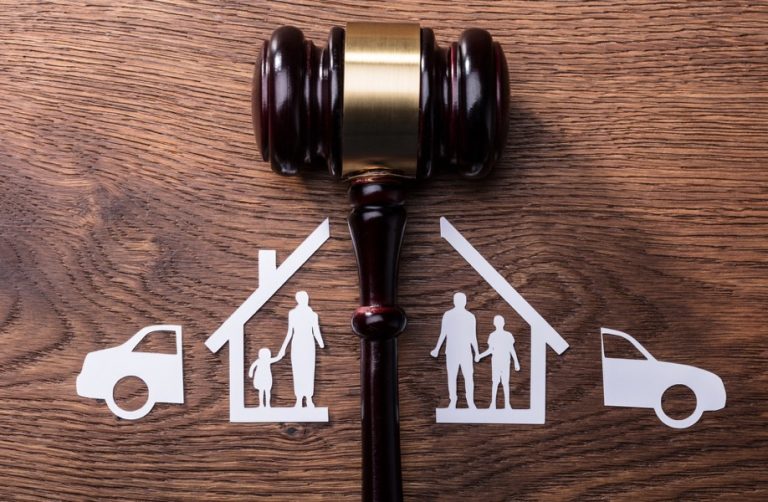It’s not simple to call it quits on a marriage especially when it ends up in a divorce or separation.
Both agreements financially separate the marriage and give legal monitoring for child custody, maintenance, and debt management. A divorce, on the other hand, ultimately ends a marriage.
If you and your husband or wife are having significant issues, a divorce may seem the only way, or you may opt for separation and preserve your finances.
A legal separation, on the other hand, may provide the same level of protection as a divorce and, in some cases, may be preferable. When deciding which is best for you, there are personal and financial benefits to consider. So, let’s look at both alternatives ( divorce vs separation).
But before then, let’s look at the different types of separation out there. There are three types of separation. However, only one (legal separation) affects your legal status in most places, although all three can impact your legal rights.
Divorce vs Separation: Types of Separation
The three types of separation include Trial, Permanent, and Legal Separation
1. Trial Separation
during a trial separation, couples can live apart while contemplating whether or not to divorce—this is known as a “trial separation.” There aren’t many legal changes during a trial separation, but all marital property laws apply.
For example, the money you earn and the things you buy during your trial separation will be treated as property obtained by a married person by the court. This usually means that you and your spouse own the property jointly (depending on your state’s property ownership laws).
So, if you and your spouse have separated but intend to reconnect, it’s a good idea to establish an informal separation agreement. Your trial separation agreement might include the following clauses:
- Whether you’ll keep a joint bank account or use credit cards together
- How will you budget your expenses?
- Who will stay in the family home?
- How will you split expenses?
- If you have children, how and when will each of you spend time with them?
You might also be able to use this trial separation agreement as a starting point for setting up a marriage settlement agreement if you eventually decide to divorce.
Your trial separation becomes permanent if you and your spouse decide there’s no chance of reconciliation.
2. Permanent Separation
A permanent separation occurs when you and your partner live apart without plans to reunite. Legal regulations about assets and debts undergo significant modifications throughout a permanent separation.
What Effects Does Permanent Separation Have on Your Rights
A permanent separation may alter property rights between spouses, depending on local laws. Assets and obligations obtained after a permanent separation, for example, may belong only to the spouse who acquires them in several states.
Each spouse is solely responsible for any debts they accrue during a protracted separation. They also won’t be able to claim any of the other’s assets or earnings.
The Importance of the Date of Permanent Separation
Because the rights to each other’s property and debt responsibilities change dramatically as of the date of a permanent separation, spouses frequently argue about when their separation became permanent.
If your husband left in a huff and slept on a friend’s couch for a month, but you didn’t talk about divorce until the month had passed, the date the separation became permanent could be ambiguous.
On the other hand, if you’ve moved out of the house and don’t expect a long-term reconciliation with your husband, don’t go out together or spend the night together only to relive the good old days.
If you reconcile temporarily, you risk modifying the date of separation and being financially accountable for your spouse’s conduct.
You don’t have to divorce immediately if you’ve permanently separated from your spouse and reached basic arrangements regarding your joint assets and debts.
You may choose to stay married for various reasons, including the desire to avoid upsetting your children’s lives or to keep your insurance coverage. Or, in some cases, maintain the status quo, which is simply easier than going through a divorce.
3. Legal Separation
A legal separation is similar to postponing your marriage. Both spouses typically move to separate residences and begin living separate lives.
However, a legal separation is more official than just separating. You’d have to get a judge to agree to your decision and draft a legal separation agreement.
This contract splits your property, establishes a plan for parenting your children, and ends your financial relationship with your spouse.
Divorce vs Separation: What Makes a Divorce Different?
Divorce is the legal term for the dissolution of a marriage. Aside from this crucial distinction, a divorce and a legal separation are very similar.
You’d need to ask a court to approve this choice and develop an agreement that divides property and lays out a parenting plan for your kids.
Due to the similarities between divorce and legal separation, they may cost the same and take the same amount of time to complete.
There are several reasons to consider a legal separation, though.
- For both personal and financial reasons.
- If you’re unsure you want to dissolve your marriage, a legal separation might offer you time to consider things while protecting your finances.
- Couples who are unable to divorce due to religious grounds.
- In contrast to a divorce, which would end this coverage, a legal separation can let one spouse maintain health insurance via the other spouse’s job.
- Legal separation also allows you and your spouse to file jointly for tax purposes, which may result in tax benefits.
- Up to this time, you may be able to maintain your marriage through a formal separation.
Divorce is a viable option for a variety of reasons.
Cases where a divorce may be the best option. include;
- When there is no gain from a legal separation and you are convinced you want to leave your marriage
- You’ll also need a divorce if you wish to remarry because you can’t legally remarry if you have a previous marriage.
- You are no longer seen as a family, so if you desire no relationship with your spouse—including the ability to make financial or medical choices for one another—divorce would be better.
- You’d require a divorce to be financially separate from your spouse in most states.
The distinctions between legal separation and divorce are significant. While we’ve included a few above, your financial advisor or lawyer can help you decide what’s best for you.
Separation vs Divorce: Other Differences
The most significant distinction between separation and divorce is that a separation keeps a marriage legal while a divorce ends it. Divorce is irreversible, and it is extremely difficult to overturn a divorce decree.
Separations are less challenging to undo.
Other distinctions between divorce and separation include:
The ability to make decisions – when a person divorces his or her partner, the person in question loses the right to make decisions concerning the partner.
A separation does not end your marriage; you are still considered your spouse’s next-of-kin and can make medical and financial choices on their behalf.
Rights to one’s property— As previously indicated, when spouses permanently separate, they forfeit any claim or responsibility for the income, obligations, and property obtained by the other as of the date of separation in various states.
Benefits entitlements— If you’re separated, you may be able to keep your spouse’s healthcare benefits—but not if you’re divorced.
Benefits are determined by state law and the conditions of the benefit. For example, a health insurance policy may include a clause that excludes a spouse from coverage in case of a legal separation. Before you permanently or legally divorce, looking over the terms of any shared benefits is a good idea.
Is It Better to Get Separated or Divorced?
Separation can help you deal with many aspects of the divorce process more calmly, such as determining child custody and splitting marital property. With no court fees or deadlines hanging over their heads, spouses may find it much easier to navigate these legal issues during a divorce.
Should I Get Divorced or Separated
Couples must decide if one or both want to marry again. If they do, achieving that goal depends on getting a divorce. But, if the pair decides they might want to get back together, they can choose to be apart and take some time to work out their feelings for one another properly.
Conclusion
In conclusion, a separation, whether amicable or legal, allows both partners to take a break from one another and ultimately choose if they wish to be together or go their separate ways.
Additionally, the pair will continue to receive several advantages that married people receive even after they divorce. In the end, the primary distinction between a separation and a divorce is whether the marriage has completely ended and the possibility of its resuscitation in the future. So what would it be? divorce vs separation?
Related Articles
Why Do People Separate but Not Divorce?



